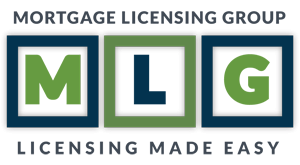What Mortgage Brokers & Lenders Need to Know About 2025 Licensing Changes
The regulatory environment for mortgage professionals continues to evolve, and 2025 brings several important updates that affect both licensing and compliance. Brokers, lenders, and secondary market participants will need to adapt quickly to remain compliant and competitive. Below is a detailed look at the most notable changes taking effect this year.
Expanding “True Lender” Laws
More states are implementing “true lender” laws designed to ensure that companies involved in the loan process cannot avoid state licensing through partnerships or workarounds. These laws extend oversight to entities that fund, purchase, or substantially participate in loan origination.
For brokers and lenders, the practical impact is clear: review operations at the state level and confirm whether new licensing obligations apply. This is especially relevant for marketplace lenders and fintech partnerships that previously relied on exemptions.
Maryland: Licensing for Loan Purchasers
Beginning in 2025, Maryland requires licensing for entities that purchase residential mortgage loans. Previously, loan purchasers were not directly regulated if they did not originate or service the loans themselves.
This change means secondary market participants must now meet licensing requirements, including background checks, financial disclosures, and bonding. Firms active in Maryland should update compliance procedures well ahead of their next acquisition cycle.
Georgia: Alignment with the SAFE Act
Georgia has eased its licensing restrictions by aligning more closely with the federal SAFE Act. In the past, Georgia disqualified individuals with a broader set of felony convictions than required under federal law.
The updated approach brings the state in line with the SAFE Act standard, which allows licensing for individuals with older convictions not related to financial crimes. This change opens the door for more qualified professionals to obtain or renew licenses.
North Carolina: Expanded SAFE Act Roles
North Carolina has revised its SAFE Act framework to account for new support roles in mortgage origination. This reflects the modern lending environment, where origination involves a mix of licensed originators, administrative staff, and digital support systems.
Mortgage firms in the state should revisit staffing classifications to ensure that anyone falling under the expanded definitions is properly supervised, registered, or licensed.
Digital Compliance Certifications
Cybersecurity and fraud prevention are now part of the licensing process in several states. New requirements include digital compliance certifications, which mandate proof of:
- Cybersecurity protections for borrower data
- Fraud prevention tools and detection protocols
- Secure servicing and loan management systems
These certifications are expected to become annual obligations, supported by third-party audits or regulator review. Firms should budget for technology upgrades and ongoing IT oversight.
Remote Work Licensing Flexibility
States continue to update licensing rules in response to remote work. Mississippi and others now permit loan officers and compliance staff to work from home without designating those locations as licensed branches, provided certain safeguards are in place.
Requirements generally include secure handling of borrower information, supervisory oversight, and disclosure to regulators. This offers firms more flexibility in staffing while preserving compliance standards.
VantageScore 4.0 Adoption
As of 2025, Fannie Mae and Freddie Mac both accept VantageScore 4.0 alongside FICO scores. VantageScore 4.0 uses trended credit data and expands eligibility for borrowers with limited credit history.
Lenders should update underwriting systems to process both models and educate borrowers on how the changes may affect credit eligibility. This shift is likely to broaden access to credit while requiring operational adjustments.
Stronger Fraud Verification Standards
Fraud prevention remains a top priority for regulators. Expect tighter requirements for borrower verification, including:
- Multi-factor identity authentication
- Employment and income validation through independent data sources
- Broader use of third-party fraud detection services
These measures add extra layers of protection for lenders and investors but also require updated compliance workflows.
Preparing for 2025
Mortgage firms should take the following steps to stay ahead of these regulatory changes:
- Audit state licensing obligations under new “true lender” and state-specific laws.
- Review employee classifications to ensure staff involved in origination are properly licensed or supervised.
- Upgrade compliance technology for cybersecurity, borrower verification, and credit score model integration.
- Update written policies on cybersecurity, fraud prevention, and remote work.
- Communicate with borrowers about changes to credit scoring models and verification requirements.
Conclusion
The licensing and compliance changes taking effect in 2025 are designed to promote transparency, security, and consumer access. For mortgage brokers and lenders, these updates mean closer scrutiny, stronger operational controls, and new opportunities to expand access to credit.
Firms that take a proactive approach—updating systems, policies, and training—will be best positioned to adapt and succeed in the year ahead.

